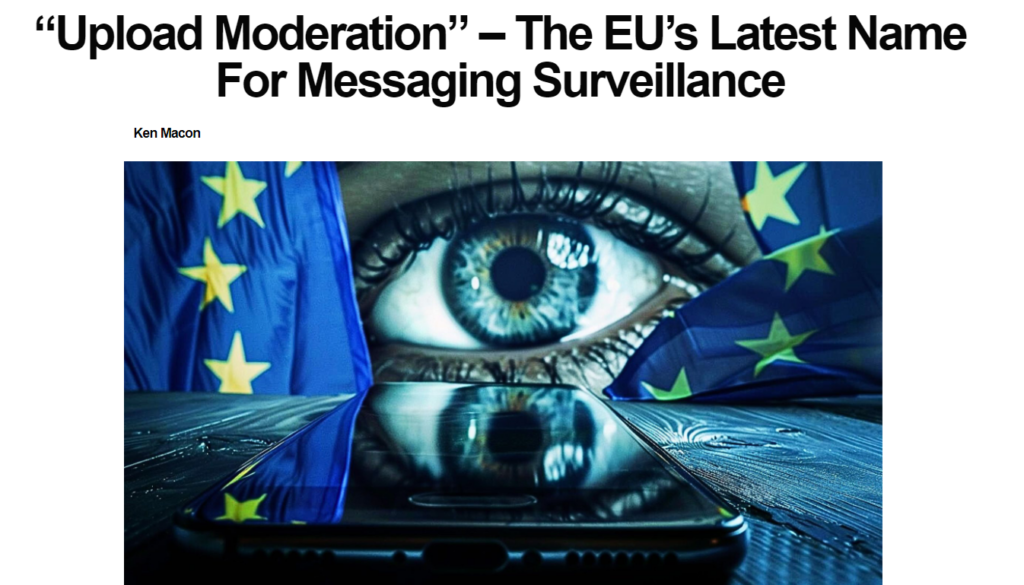“According to a leak obtained by Pirate Party MEP and shadow rapporteur Patrick Breyer,” EU nations may soon adopt the contentious Child Sexual Abuse Regulation (CSAR), also referred to as ‘chat control.’
Users of communication apps would have to consent to having all of their photos and videos automatically checked and perhaps disclosed to the EU and police, according to the plan.
Pop-up notifications or terms and conditions would be used to get this consent. Secure end-to-end encrypted messenger systems would have to include monitoring backdoors in order to do this, which would essentially result in the prohibition of private chat. This is described as ‘upload moderation’ in the Belgian plan, which says it’s not the same as ‘client-side scanning.’ Refusing to give approval would prevent users from uploading photos and videos but would allow them to send text messages.
Artificial intelligence is used in the scanning technology to identify known child sexual abuse material (CSAM) and flag newly discovered photos and videos that are thought to be suspect. The previously recommended scanning of text messages for grooming cues is not included in the proposal, and audio communication scanning—which has never been used—is not covered.
Several governments who were initially opposed to the concept have surprise come around to it since it was first presented on May 8. On May 24, it will be reviewed again, and EU interior ministers are scheduled to convene just after the European elections with the intention of approving the bill.
“Patrick Breyer, a staunch opponent of chat control, expressed serious concerns. ‘The leaked Belgian proposal means that the essence of the EU Commission’s extreme and unprecedented initial chat control proposal would be implemented unchanged,’ he warns. ‘Using messenger services purely for texting is not an option in the 21st century. And removing excesses that aren’t being used in practice anyway is a sham.’
Breyer emphasizes the threat to digital privacy, stating, ‘Millions of private chats and private photos of innocent citizens are to be searched using unreliable technology and then leaked without the affected chat users being even remotely connected to child sexual abuse – this would destroy our digital privacy of correspondence. Our nude photos and family photos would end up with strangers in whose hands they do not belong and with whom they are not safe.’
He also points out the risk to encryption, noting that ‘client-side scanning would undermine previously secure end-to-end encryption to turn our smartphones into spies – this would destroy secure encryption.’
The previously critical EU nations’ changing positions worry Breyer because he thinks they may split the blocking minority and advance the idea. He bemoans the Council’s absence of a legal opinion on this matter pertaining to fundamental rights. He asserted:
‘If the EU governments really do go into the trilogue negotiations with this radical position of indiscriminate chat control scanning, experience shows that the Parliament risks gradually abandoning its initial position behind closed doors and agreeing to bad and dangerous compromises that put our online security at risk.’

